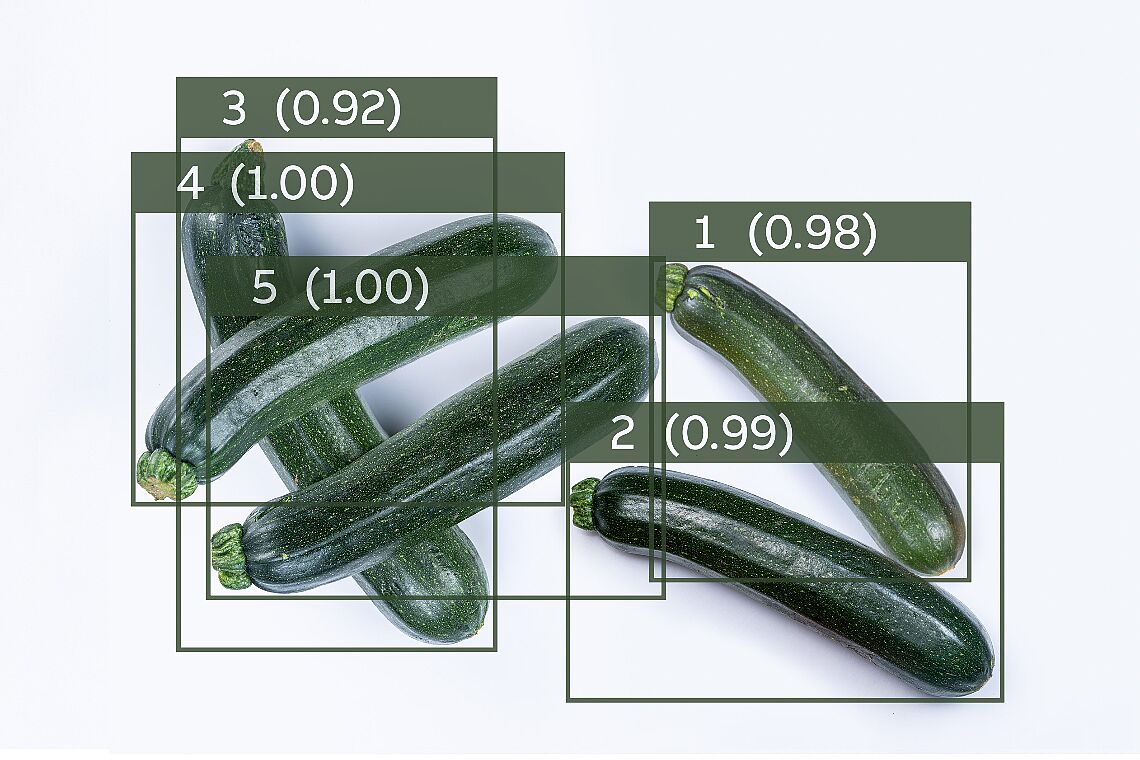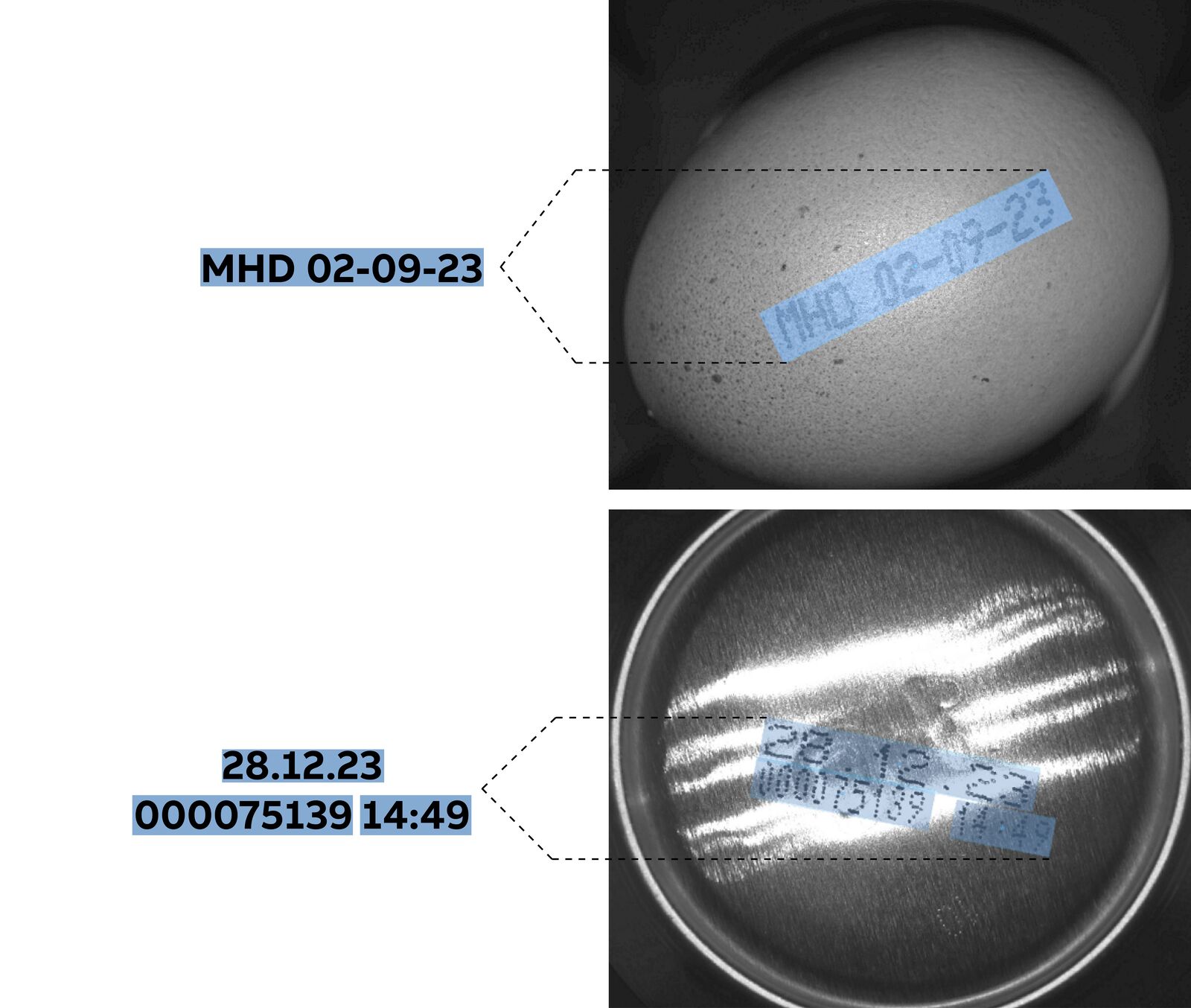
AI-enhanced machine vision
Vision functions based on deep learning let you get excellent and consistent results under challenging conditions and handle unpredictable variations in lighting, materials and products. Rather than writing fixed rules, you just upload a set of good reference images. The deep learning toolchain integrated in Automation Studio streamlines setup with predefined training parameters. By eliminating complex manual configuration, it reduces errors, simplifies adaptation to new data, and ensures flexible, efficient production. The B&R Smart Camera offers a suite of powerful AI functions that are easy to set up without extensive coding or vision expertise.


Optical character recognition (OCR)
Deep OCR can read distorted or low-contrast text that conventional rule-based systems would fail to recognize—and it comes pre-trained and ready-to-use out of the box.

Anomaly detection
Global context anomaly detection learns to tell the difference between natural variations and actual defects. No need to train it on errors: just teach the camera what “good” looks like, and it's able to recognize any deviations from that.

Segmentation
Semantic segmentation allows trained defect classes to be localized with pixel precision—allowing users to solve tasks that were previously impossible or programming intensive.



Object detection
Deep learning based object detection makes it possible to detect shapes—even when edges are unclear, backgrounds are noisy, or edges overlap.

Classification
Deep learning based classification learns to recognize product types or features, allowing you to recognize and sort product variants as easily as humans can tell apples from oranges.

Use cases

OCR without training or parametrization
The integrated character recognition function has an exceptional capability to instantly recognize characters. There’s no training or parametrization necessary to enable high-speed reading even with poor image quality or difficult characters, such as dot matrix fonts. A deep learning algorithm makes the function even more reliable and opens up exciting new ways to improve quality, boost productivity and prevent rejects - all while making manufacturing more flexible. All available smart camera features can be combined with deep OCR.
- World class performance of 26 TOPS
- High-speed reading also for poor quality
- Recognize even difficult characters instantly
- No more parameters than ROI and confidence level
- Deep OCR for better results
Global context anomaly detection
Deep learning-based anomaly detection identifies even the smallest deviations in structure with high reliability. This detection technology has already been successfully tested for automatic quality control of wooden surfaces, textiles, welding joints and more.
Unlike other deep learning methods, it requires no dedicated labelling of different defect classes. In most cases, around 100 good images are sufficient to train the network. During inference, anomaly detection segments the regions of the images that differ significantly from the training images.
- Clearly highlighted surface defects in a heatmap
- Quality relevance can be finely adjusted with downstream rule-based algorithms
- Boost machine performance without AI experts
- Higher productivity and quality along with less scrap